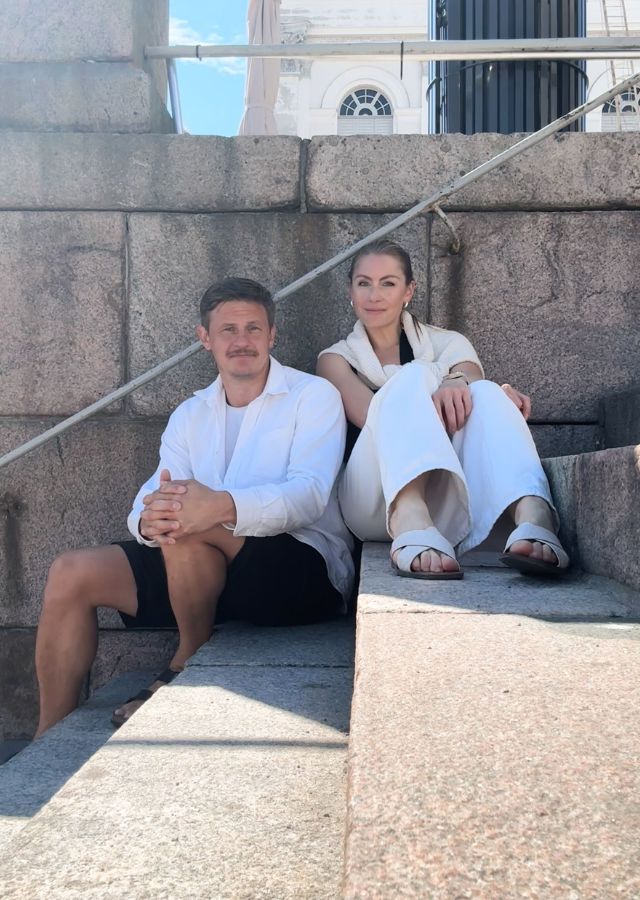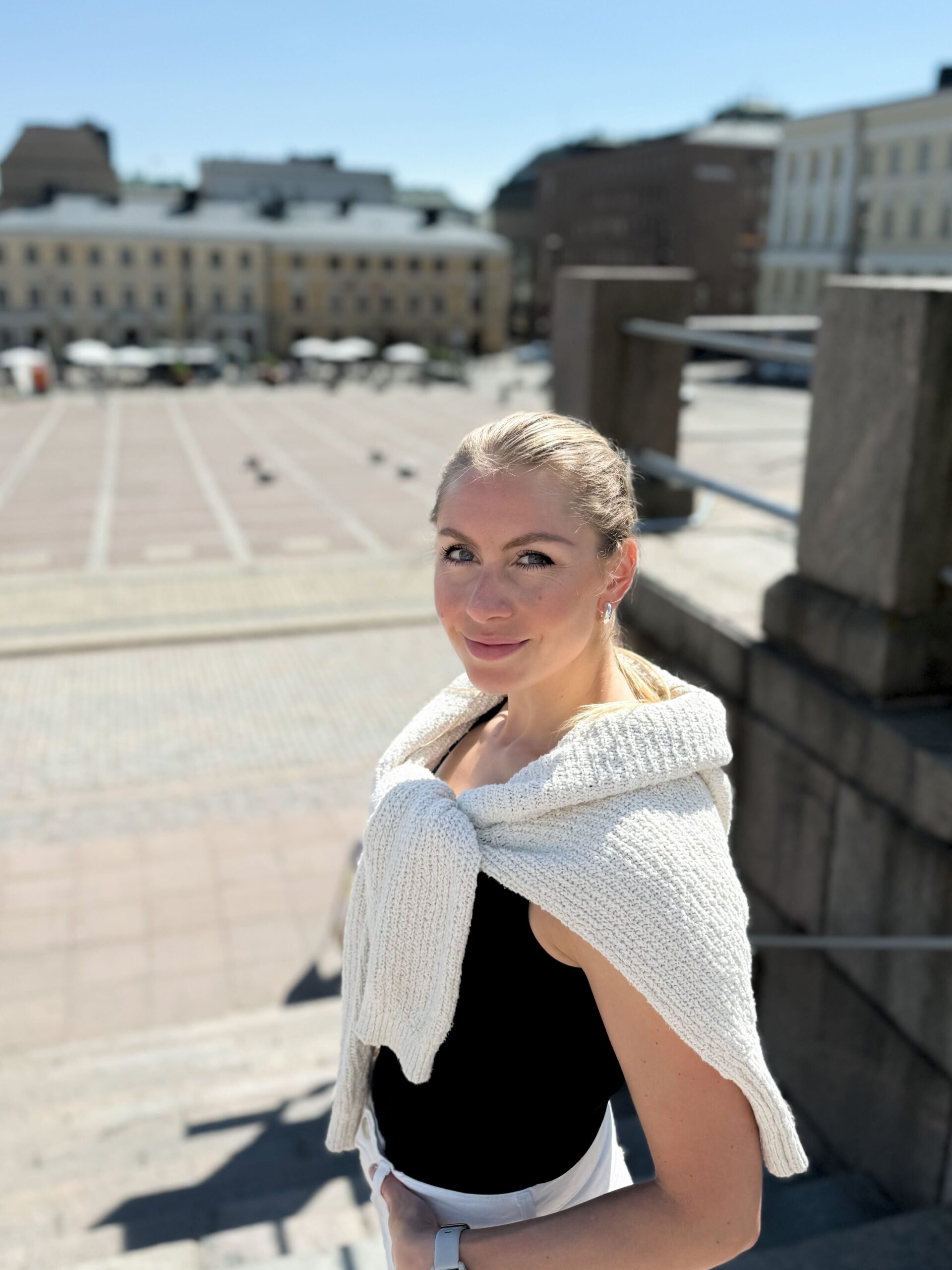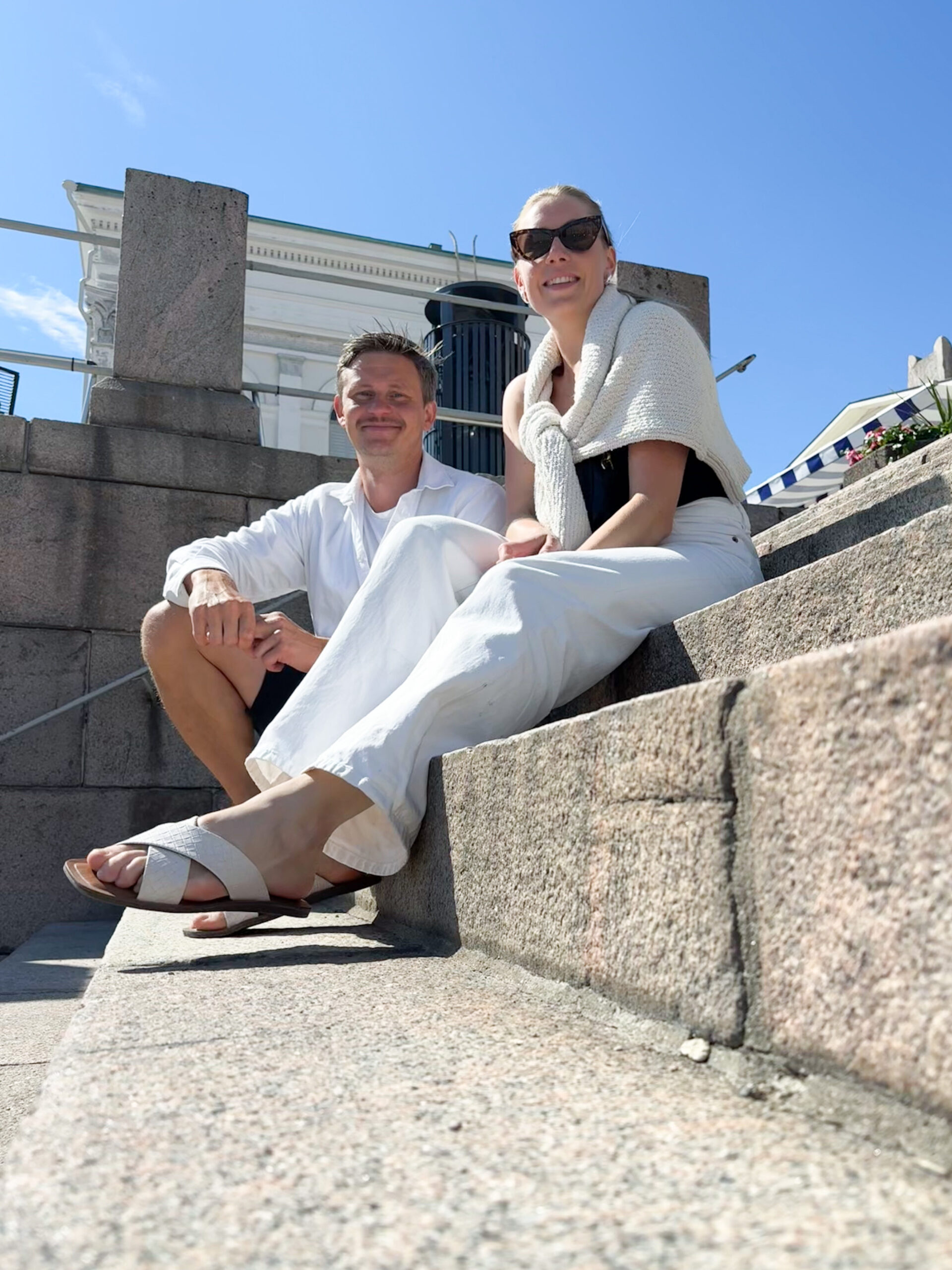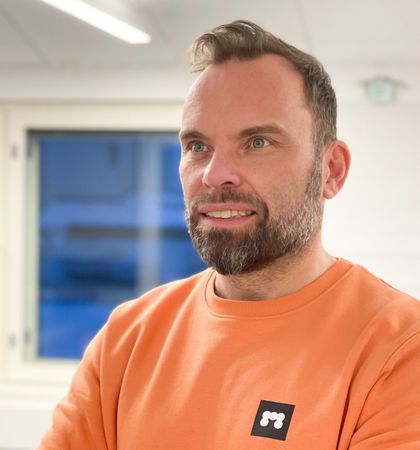Why founders thrive: The essential success drivers behind systematic entrepreneurship
From our blog / Article
What drives individuals to become entrepreneurs and how structured processes can help young companies find the right path to fulfil those dreams? In this blog we share are our key takeaways from our recent discussion about the topics.

We, Marko Oksanen, the CEO & Co-founder of Coventures and Riikka Uimonen, the Investment Director and Co-founder of Fusion Ecosystem, met recently to have an ice cream and ended up chatting about entrepreneurial dreams and the systematic ways to build growth companies.
We both work in roles where we gain unique points of view of how companies can be systematically formed from mere ideas to thriving growth companies. We continuously talk to founders-to-be, and we wanted to share our insights on what motivates individuals to become entrepreneurs and how structured processes can help young companies in the right growth track. Here are our key takeaways from our chat.

What are the market trends in entrepreneurship?
The atmosphere around entrepreneurship has changed a lot in the last 10 years; being a growth entrepreneur has become an interesting career path again. Top young talent consider growth companies, which used to be startups, to be among the most interesting places to work. Year 2022 broke records in startup funding, which had been growing for 10 years.
At Fusion, we have observed another trend. Experienced business leaders are also increasingly seeking to become business owners and dream about entrepreneurial careers. This shift signifies a departure from the traditional career path, where long-term loyalty to a single company was considered noble. Today, the possibility of having multiple careers throughout one’s lifetime is not only feasible but common.
“Many Fusion company founders are experienced business leaders who have been pursuing a corporate career for over 20 years, and then shifted to the entrepreneurial career. These kinds of paths are common nowadays.”
This evolution in career-building has led many seasoned professionals to pursue entrepreneurship. The desire to master their own careers and maximise the use of their skills and competencies for something meaningful is a powerful motivator. This is also a recurrent theme in Fusion founder discussions. Many express a desire to build sustainable companies that support their employees, fostering an environment where things are done differently and more beneficially for both humans and business.
An entrepreneurial career journey can smoothly flow through very different types of engagements. At Coventures, we have observed journeys where individuals start as freelancers, transition to building a service company, and eventually venture into a product startup. This diversity enriches the entrepreneurial experience, as each form of entrepreneurship has its own unique characteristics.
“A well-rounded entrepreneur can navigate and excel in various contexts, adapting to different business environments.”

What are to-be founders dreaming about when they kick-start a business?
We have seen founders come with various motivations. For some, the goal is rapid growth and a big exit driven by financial incentives and a need to prove their capabilities. Others seek to build a meaningful career, and create a workplace for themselves and their like-minded peers. Some are simply exploring the future’s possibilities. Importantly, these motivations can evolve as the company grows and they face new opportunities.
We have noticed that independence of time and place has always been a big driver for entrepreneurship. This preference seems to have grown in popularity and as a new thing people also want to have ethical freedom to choose what type of impact, they convert their time to.
“For many senior people this freedom of building something that they can call their own, that embodies a culture, values and impact that they want to sign on to is an important motivator.“
This can be in contrast to their previous careers where they have had to make compromises regarding some aspects of their freedom. At Coventures, some of the most senior people also place value in making sure their offering and skills stay relevant, which is possible when working together with a talented group, including also younger people. Same applies to Fusion founders – experienced people want to maximise the use of their potential working together.
The different motivations influence the types of risks founders are willing to take and the growth trajectories they aim for. They also determine the kind of entrepreneur they want to become. Whether driven by rapid success or long-term impact, the underlying motivations shape the company’s path and culture.

How to get a thriving start and what is systematic entrepreneurship for?
Where companies are still being born in a garage with friends and colleagues taking their watercooler talks to the next level and making the leap, there exists a global trend towards systematic company creation. We believe systematic venture building is a welcome addition to the ecosystem.
“Where we love reading idyllic founding stories of two friends setting up shop in a garage, only relying on this model will create a very inefficient market. Systematic Venture Builders come in by boosting the “founder – idea – opportunity” -matching and helping ends meet, thus bringing more efficiency to the market.“
Systematic venture building also allows us to tackle bigger challenges than we could without cooperation. It allows entrepreneurs and institutions to work together in solving the big challenges facing our world which require co-operation.
Coventures and Fusion have distinct models and focus areas for systematic venture building, yet we also collaborate to create new thriving businesses. Fusion co-founds scalable consulting and digital development companies, transforming them into success stories by leveraging ecosystem collaboration and embedding growth into their cultural DNA. Coventures, in turn, specialises in being a close-knit community for senior entrepreneurs who want to collaborate in incubating mainly scalable ventures with each other and our corporate partners.
We have discovered that there are some inherent truths that hold true to both models of incubating companies. Systematic venture building is a new domain where we learn new things every day. We thought we would share our top learnings that seem to hold true to modern venture building no matter the model. These are our top learnings on how systematic venture building can make a difference.
1. From busyness to productive hustling
Systematic venture building focuses on doing the “right” things actively, rather than just being busy. Often the right thing might be uncomfortable and it’s much more convenient to do other things. As an example, calling up potential customers can be a difficult task especially when you’re yet unsure about your product offering, value proposition and your pitch. Many founders postpone reaching out to clients in favour of doing other types of preparations and planning work. To succeed you often need to hustle, meaning you also utilise your own network and reach the goals with creative tactics allowing you to switch approaches on the fly until you find the most effective one. For people who haven’t been entrepreneurs before this hustling mindset can be challenging.
A systematic approach can help founders move out of their comfort zones faster and ensure critical tasks, like cold calls in new sales, are done effectively with a best practice approach. Transforming mere busyness into productive activity can have a huge impact on enhancing efficiency and speed.
“It is easy to become blind to one’s own actions. A coach can act as a mirror and help the founders to allocate their efforts in the actions that can determine if the company will make it or break it.”

2. Support for market-driven business model
More than 90% of companies fail because of reasons connected to not having enough market demand for their product or service. Systematic venture building can greatly reduce this risk by leveraging the extensive networks and ecosystem assets to quickly validate both the supply and demand in the equation. Lot’s can be validated already before incorporation.
In service companies, the business model tends to be simpler and easier to validate. For example, in the Fusion ecosystem, there are over 30 companies with experienced founders who possess a vast amount of business knowledge and market insights, along with a Fusion core team whose expertise lies in systematic entrepreneurship, making it especially easy to validate business concepts. This support helps young companies to accurately gauge market needs and align their offerings, reducing the risk of failure and increasing the chances of sustainable growth.
“When we incubated Mallow together, we had lots of discussions with stakeholders who helped us define what type of demand there is the greatest need for in the Microsoft ecosystem. We then contacted suitable founders and also learned about how attractive a new focused player could be on the talent side”.
3. Team-first incubation
We strongly believe that the key to building a thriving company lies in the team. The “team first” approach to incubation emphasises the significance of assembling a balanced founding team, where members complement each other’s competencies, share the same level of ambition and assume the ownership of building their company as founders early on. We believe the founding team must be involved from the very beginning so they end up taking ownership of the idea and develop it further with themselves at the driver’s seat. This approach ensures that the business is built on a solid foundation of founder’s who work as a team to fulfil their dreams
“At Coventures we’re pioneering the approach of co-building companies this way also with our corporate clients. We start with recruiting the co-founders who start sharing the risks of venture building early on, thus also working with an entrepreneurial drive. This way we can spin-out ventures 5 – 10 times more cost-effectively compared to in-house or consultant-driven models of venture building”.

Continuing the conversation
Systematic venture building with Coventures or Fusion is not for everyone. We collaborate with motivated entrepreneurs to systematically build growth businesses, rather than with those seeking to just earn a decent personal income. Our ambition for growth means we are not the right partners for founders lacking the same drive.
We both believe in the power of building together as a community, supporting entrepreneurs throughout their journey and enabling career paths that alternate between different forms of entrepreneurship. Each path is unique, yet shares common elements.
As our conversation and ice creams came to an end, we concluded that exploring the various forms of entrepreneurship would require another blog post. Thus, to be continued.
About the Authors
Riikka is Investment Director at Reaktor, leading the way in co-founding initiatives and serving as board member in various Fusion companies. With a background in management consulting within the tech industry, Riikka brings a wealth of expertise to her role. Riikka earned her PhD in business agility and strategic risk management in uncertainty from Tampere University. On her free time, she is an active sportswoman and enjoys ultra marathons and tennis.
Marko is the co-founder and CEO of Coventures with broad experience in venture building including co-founding startups, coaching other startups, consulting clients on venture building and working with international venture builders as Rocket Internet & Founderslane (now Creative Dock). Marko is passionate about enabling collaboration between entrepreneurs and corporations to enable a new entrepreneur-powered systematic approach to venture building.
MORE ON THE SAME ISSUE
Want to know more?
Connect with us.








